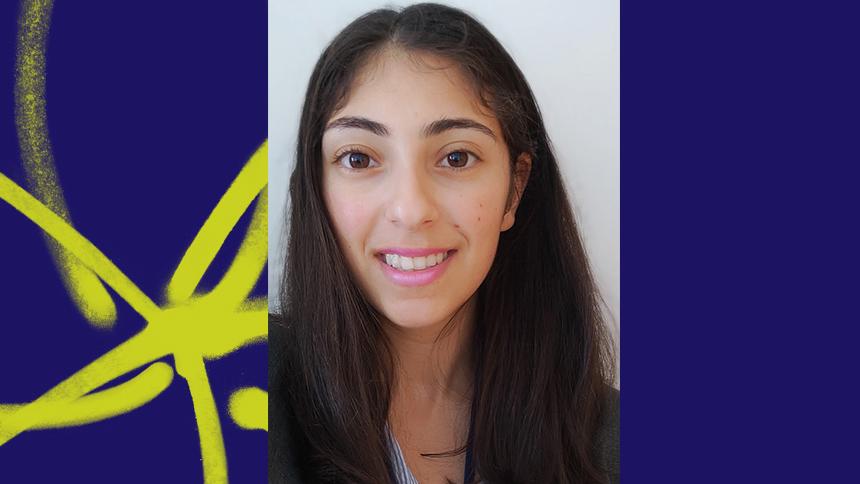Researching how best to change attitudes towards dementia among younger people
Meet Esra Hassan, PhD student at Brighton and Sussex Medical School’s Centre for Dementia Studies.
Esra, what are your favourite things?
- Book – Mythos by Stephen Fry.
- Way to spend time – I am a sun seeker, I like to travel.
- Memory – I used to be a dancer in my adolescence. Many of my favourite memories are ones where I used to perform on stage with other dancers, musicians and other artists. The stage is a magical place.
Why dementia research?
It stems from my background in clinical neuroscience. I was very interested in neurodegenerative diseases, and I did some public engagement and outreach work in secondary schools where I would talk to young people.
I realised how much misinformation exists, but also how receptive young people are to these topics when delivered in the right way.

How has Alzheimer’s Society supported your work?
The Society’s support has allowed me to attend conferences, disseminate my research findings and meet not only incredible researchers and academics in the field, but also an entire network of people living with dementia and carers.
This has given me new perspectives and inspirations that I would not necessarily get just by reading research papers.
Everyone is supportive and it is really nice to be part of a network that genuinely strives and cares.
What are you currently working on?
I am attempting to establish which factors contribute towards negative and stigmatising attitudes among adolescents towards dementia.
I want to understand how attitudes change over one year, exploring why they do or don’t change.
After looking at current evidence about what factors are associated with these attitudes, I have put together my plan for collecting data from adolescents across England.
What difference do you hope this will make?
Raising awareness of dementia is a policy priority, within the UK and internationally. Stigma leads to social isolation and reduced quality of life. It can also act as a major barrier to seeking support, diagnosis, treatment and information.
By understanding how and why adolescents’ attitudes can change, we will know which factors and risk groups we can target.
We can hope to reduce stigma in the community, as well as among healthcare professionals when these adolescents go into such professions.
In what direction would you like to take your research in future?
I would love to take the evidence we gain from this research to advise on and implement more effective dementia awareness initiatives. It could also be useful in setting guidelines for how the media portrays dementia.
I certainly hope to influence policy with my research, nationally and internationally.
How can you help?
£15.50 could pay for an hour of supporting PhD students to conduct research projects.

